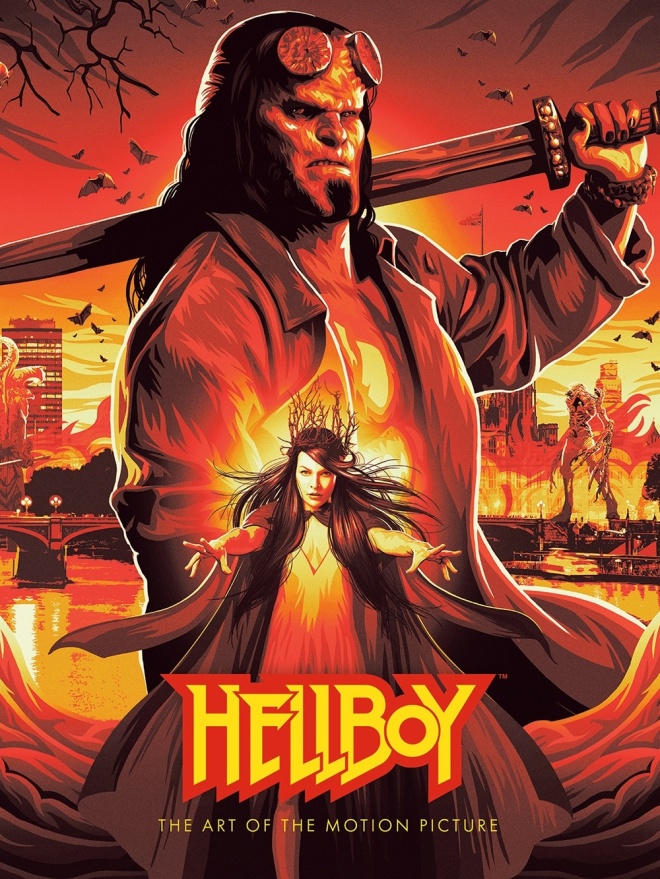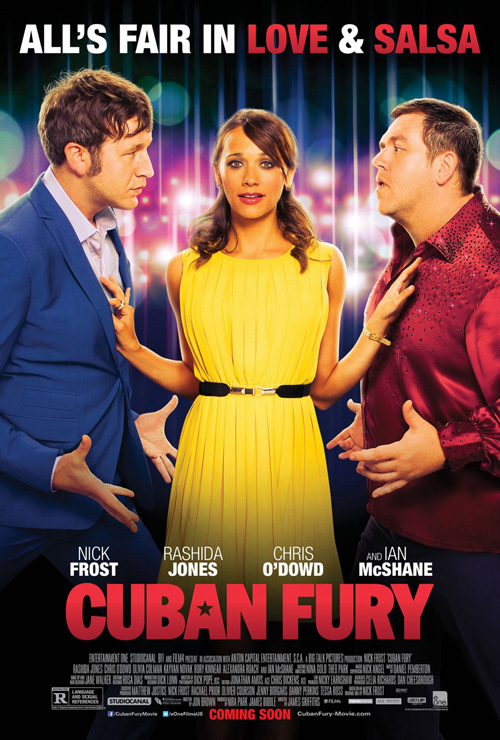
If I could be bothered to hunt through my recent reviews of Woody Allen movies, I’d probably be confirmed in my belief that I haven’t given him an unqualified good review in a very, very long time. (Unless I was reviewing some of his classics from the 70s or 80s.) People complain that the man’s in a rut, or that he hasn’t hit the same creative peak he kept achieving without breaking a sweat back in the 70s with classics like Annie Hall, Love And Death, Sleeper… and those are only the funny ones. I’ve tried to be an apologist for the guy as long as I can, and I do believe my ratings of his recent movies have occasionally been more charitable than the actual scripts or overall execution of the concepts deserved.
Well, no more. I know Scoop isn’t anywhere near as critically well-received as its immediate predecessor Match Point, which also stars Allen’s current muse, the buxom, blondely American Scarlett Johansson. And the movie doesn’t break any new ground the way his classic comedies did, like when Allen’s character in Annie Hall invited the audience to listen in to the neurotic little conversations in his head. But in terms of being a thoroughly entertaining, funny romp, Allen seriously hasn’t fired on this many cylinders in a very long time. Speaking as one who’s always preferred his comedies, I’ve found his attempts at full-out comedy since the decade opened in 2000 either a little forced (Small Time Crooks), too darkly bitter and mean (Anything Else) or just a tad messy for my liking (Hollywood Ending).
He even seemed to have lost touch with that quintessentially weird, chatty and death-obsessed Woody Allen character he mostly reserved for himself (there being no one else in the world quite so… well, weird, chatty and death-obsessed), to the extent that the incarnation of this character in Anything Else was frustratingly dark. He even completely removed any trace of this side of himself from his last two movies (MP and Melinda and Melinda – Will Ferrell wasn’t a good enough substitute in the comedy half of M&M). But here, it’s the character he plays, two-bit magician Sidney Waterman aka Splendini, who is the personification of his return to form: when Sidney babbles his way through a developing friendship with Johansson’s Sondra Pransky and gets increasingly entangled in a murder mystery, the movie feels as familiar as the best of Allen’s wordy, self-reflexive banter. So no, nothing new here – more of a return to form, with excellent dialogue and great comic timing constantly wringing wry, wry laughs out of a delighted audience. But when the original was so good, there’s no reason to break the mould, is there?
Anyway, I’m getting way ahead of myself – most of the review is already written! But I always feel the need to insert a brief synopsis somewhere, even if only to remind myself in future of key plot points in the movie. Scoop opens on the funeral service of Joe Strombel (Ian McShane), a hard-nosed investigative journalist who hits upon the scoop of his life beyond the grave… and so determined is he never to give up a story lead that he keeps finding ways and means to return to earth and give student journalist Sondra tips on how to follow up on the story. He warns her that the suave, handsome Peter Lyman (Hugh Jackman), son of a lord and bred from youth for a career in politics, is actually the Tarot Card serial killer who’s been plaguing the dark-haired prostitutes of London for ages, and wants her to gather evidence to break the case wide open. In a pretty unlikely sequence of events (but who cares?), Sondra manages to introduce herself to Peter by faking her own drowning – as Jade Spence, with Sidney introduced as her father, Sondra starts to hang out in Peter’s exalted social circles… and starts falling for him. She finds it increasingly difficult to believe that he could be a murderer after all… but what if he is, and Sondra is just getting herself deeper and deeper into something she just can’t handle?
In this case, as with the case of the similarly madcap Manhattan Murder Mystery, the actual murders and the culprit behind it all are actually far less important than you’d think. The whole murder mystery case serves as an intriguing enough backdrop for the characters to banter with one another, of course, but isn’t particularly original – and I doubt that was what Allen was going for. No, the is-he-isn’t-he aspect of the movie, as we watch the suavely handsome Peter charm his way into Sondra’s heart, is fairly run-of-the-mill, and the reason why I expect many critics didn’t take too kindly to the movie. Not original enough, I suppose they’d say – but honestly, I never thought this was the real point of Scoop at all. The real point of it, as far as I could ascertain, was to throw two completely rubbish characters into a situation in which they’re completely out of their depth, and have them somehow bungle through solving a mystery – or not – by a series of wildly unlikely chance occurrences (hello, Sondra’s main tip comes from a dead guy).
Oh, that and the wildly enjoyable dialogue, of course. It’s hard to tell how much of it was improvised on the spot between Allen and Johansson (though the latter admitted in interviews that, although she was given free rein, she didn’t stray too far from an already excellent script), but the banter is free-flowing, charming and wonderfully Allen-esque in its bumbling, free-flow-association way. It’s been a loooong time since I’ve laughed so hard at one of his movies, but I did that here, whether it was through Sidney’s snarky asides about his purported daughter (“she’s learning-disabled [but] practically normal now”, or how drowning is a genetic trait of the family), or the quirky interplay between Sondra and Sidney (“If you put our heads together, you’ll hear a hollow noise”). I’m actually one of those people who hates it when Allen reins in that acerbic, albeit very rambly, wit of his – and here he gives the character of Sidney carte blanche to be as random as he wants, so we wind up with corking lines like “I was born of the Hebrew persuasion, but I converted to narcissism” (so Allen!) and moments in which Sidney tries to remember a simple combination through a very complicated mnemonic system (“16 blue ponies, 21 airplanes, and 12 spinning midgets”).
While it’s clear that Allen himself hasn’t had this much fun onscreen in ages, he also scores a really excellent cast to tell his story and crack his quips this time. Johansson was almost too detached in MP, playing up as she did her sex-bomb femme fatale image. With Scoop, however, Allen reveals her to be an adept comedienne as capable of going toe-to-toe with him in long, rambly, snarky discussions i.e., she is, in this movie, his Diane Keaton for the noughties (though of course Johansson doesn’t quite measure up to the original!). Jackman does what he does best – look hopelessly handsome and be hopelessly charming – and does it so well that it’s easy to neglect the fact that his character could have been made far more intriguing, dark and complex. As I pointed out earlier, however, the murder mystery is almost secondary to the comic process of truly amateurish detective work that accompanies it – Sidney and Sondra almost always just getting caught trying to get into Peter’s music instrument vault, their attempt to bring their story to a newspaper only to be stumped about just where they originally got their lead etc. So it doesn’t matter that Jackman’s character is a bit of an empty vessel – when he’s onscreen, he makes it sing and that’s all that really matters. McShane, in a small role, is always amusing every time he fades into the picture, imparting more of his macabre wisdom as he eludes Death’s scythe yet one more time.
Whether you’ll like Scoop depends a lot on how much you can endure Allen at his most self-indulgent. This movie, in a way, feels like a huge ‘screw you’ to his critics – after triumphantly wresting back some respect from them with the deeply dark, sexy MP, he appears to be intentionally going back to what he loves and does best: a murder mystery (did you know Annie Hall was actually about a murder case but those bits were sliced off because it felt like two different movies?), laced through with comic suspense and romance, and starring, most prominently, his nebbishly Jewish, neurotic alter ego. If you can’t take any of these things and were never much of an Allen fan to begin with, this probably isn’t going to be the most enjoyable of movie experiences for you. But if you go in there just wanting to thrill in a movie whose tongue never once leaves its cheek, and is peppered liberally with Allen’s zinging, smartly-paced dialogue and great musical cues (not swing as before, or opera as in MP, but classical this time), not to mention an enthusiastic cast – including himself – boasting great, sparkling chemistry, you’d be hard-pressed to do any better this year than with Scoop.
High praise for a comparatively slight movie, you say? Certainly. But when the auteur in question is Woody Allen, who is a genius at creating remarkably rich movies that aren’t really about all that much when it comes down to it, all I have to say is: welcome back, Woody. I’ve missed you.










